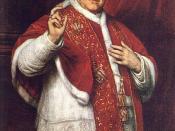In the medieval town, the government seemed very greedy, taxing for things that needn't be taxed, and sometimes taxing for no reason at all, as if someone had just come into a lot of money, and the government knew about it, the "robbers" would come and tax them for seemingly nothing at all. Some of the taxes were; labour service/tax, head tax, marriage tax, and tax at will, tax at will being the one I'd talked about in the previous sentence, where they tax you for basically no reason. In return for the taxes, the townspeople are given services, mainly protection by the knights.
The mayors of the towns are usually elected by the "Masters of the Guilds", [but sometimes they simply replace themselves at intervals by "co-optation"=> Page 199, Town Government]. "Co-optation" is when the mayors themselves (and their council) pick the ones who they want to be their successors.
Either way, the town is always placed in the hands of a rich "bergher", who is always close to the prince. Normally, only a small number of families are ever in political power. The commune is occupied by those who do business, if you open a business, you must join the commune. Members of the commune take an oath, and swear upon certain items/relics that they will guard the Lord and his possessions, his Lady and his children and to also be loyal to all members of the commune, not aid foreigners against the berghers, obey the towns mayor, and pay all their debts to society and to be good and loyal berghers. Under the mayor and the councillors, serves several other officials; treasurers, clerks and magistrates.
The law enforcement in the medieval town is quite simple; the guards watch the ramparts by day, and the whole militia...


